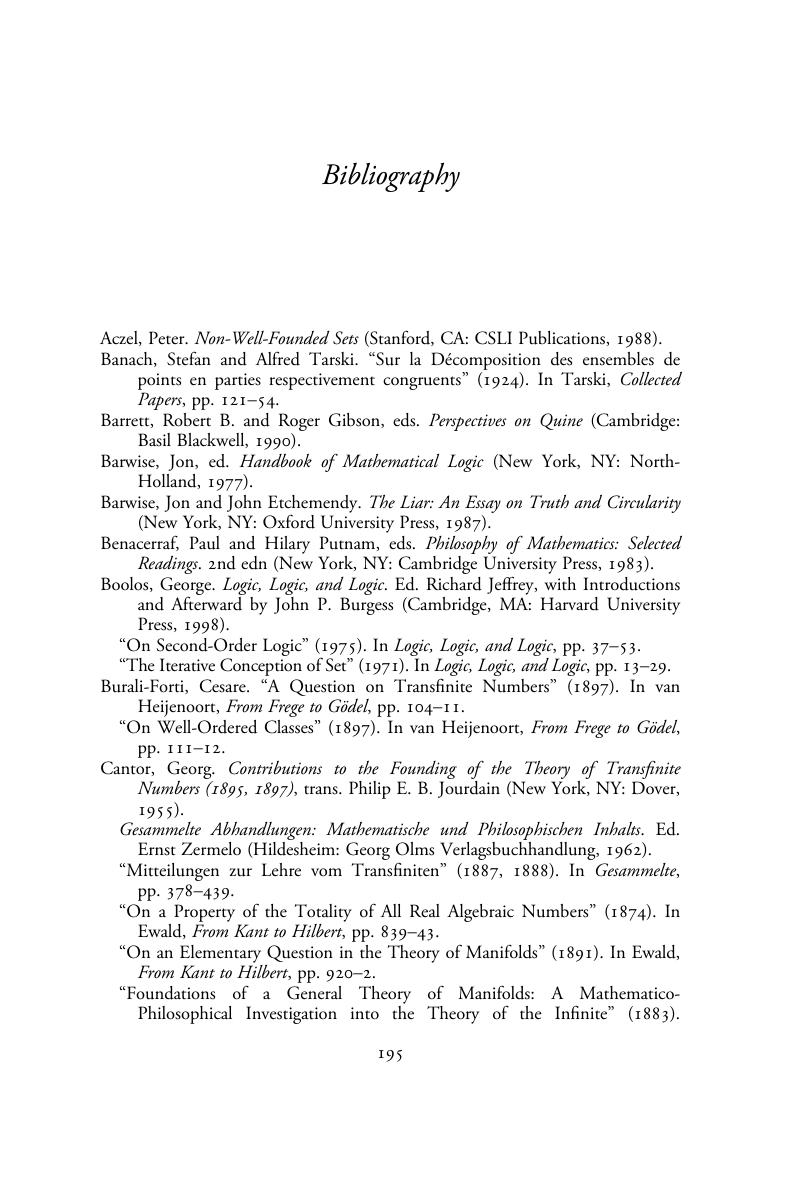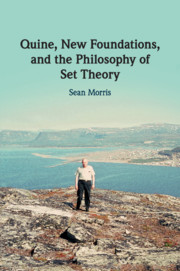Book contents
- Quine, New Foundations, and the Philosophy of Set Theory
- Quine, New Foundations, and the Philosophy of Set Theory
- Copyright page
- Dedication
- Contents
- Preface
- Introduction
- Part I Set Theory’s Beginnings
- Part II Quine, Set Theory, and Philosophy
- Part III New Foundations and the Philosophy of Set Theory
- Bibliography
- Index
- References
Bibliography
Published online by Cambridge University Press: 13 December 2018
- Quine, New Foundations, and the Philosophy of Set Theory
- Quine, New Foundations, and the Philosophy of Set Theory
- Copyright page
- Dedication
- Contents
- Preface
- Introduction
- Part I Set Theory’s Beginnings
- Part II Quine, Set Theory, and Philosophy
- Part III New Foundations and the Philosophy of Set Theory
- Bibliography
- Index
- References
Summary

- Type
- Chapter
- Information
- Quine, New Foundations, and the Philosophy of Set Theory , pp. 195 - 206Publisher: Cambridge University PressPrint publication year: 2018



